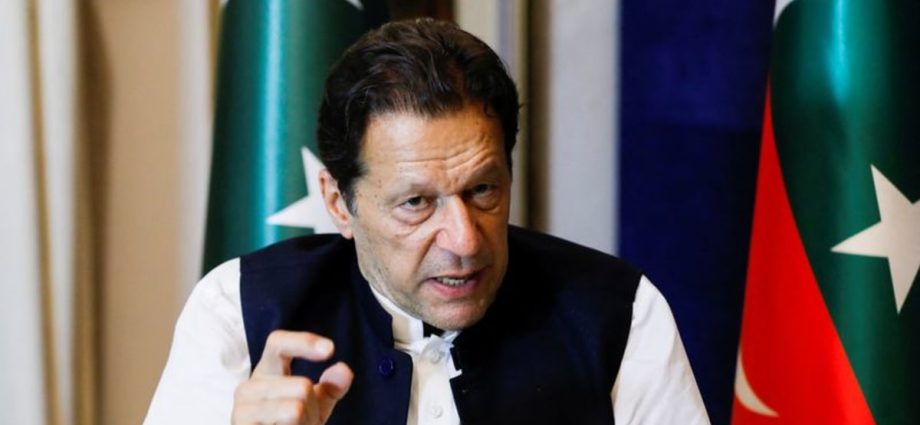
Criticism of the military establishment is rare in Pakistan, where army chiefs hold significant influence over domestic politics and foreign policy and have long been accused of interfering in the rise and fall of governments.
Prime Minister Shehbaz Sharif – whom Khan also alleged was involved in the assassination plot – weighed in on Twitter.
“His levelling of allegations without any proof against Gen Faisal Naseer and officers of our Intelligence Agency cannot be allowed and will not be tolerated,” he said.
REJECTS FINDINGS
Pakistan’s government has said the assassination attempt was the work of a lone gunman, who is now in custody and who confessed in a video controversially leaked to media.
Khan rejects those findings and insists authorities have refused to accept his attempts to file a so-called first information report (FIR) with police identifying the real culprits.
Khan repeated his allegations in a video statement released ahead of his court appearance Tuesday, saying that “there is no reason for me to fabricate the facts”.
ISPR said it reserved the right to “take legal course of action against patently false and malafide statements and propaganda”.
Khan faces dozens of charges that were brought against him since he was ousted– a tactic analysts say successive Pakistan governments have used to silence their opponents.
Pakistan’s military, the world’s sixth largest, holds undue influence over the nation.
It staged at least three coups since the country gained independence in 1947 and ruled for more than three decades.

